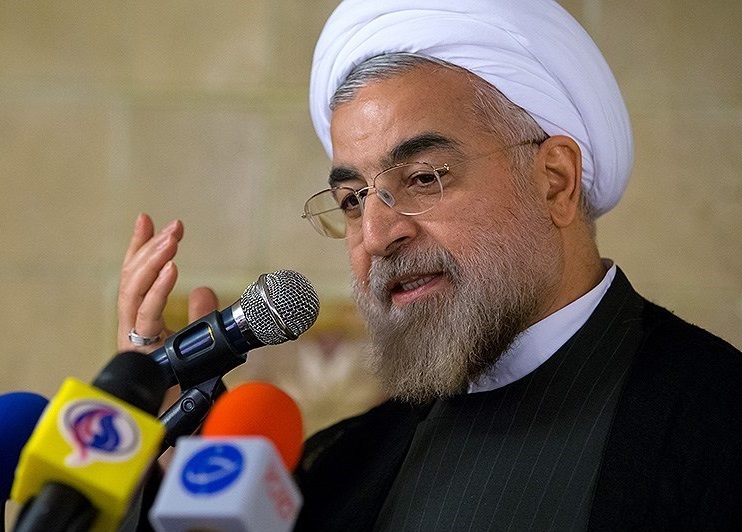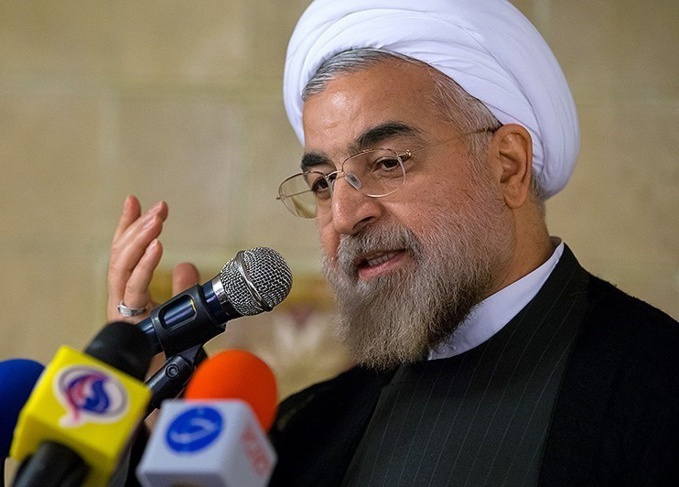“Since we did not achieve the desired results, we will take the third step the day after tomorrow (September, 6),” Iranian IRNA quoted President Rouhani. According to him, Tehran intends to remove all restrictions from conducting research work on centrifuges. Recall that in the framework of the Joint Comprehensive Plan of Action (JCPOA), Iran pledged to establish a restriction on research, technology and materials that can be used to create nuclear weapons. However, in May, a year after the United States withdrew from the JCPOA and brought back sanctions against Tehran, Iran announced a phased reduction of its nuclear deal obligations. At the same time, the Iranians appealed to the European Union, from which they expected to continue active economic cooperation in spite of American sanctions. And it was precisely the EU towards which Tehran’s ultimatum was addressed: either you find a solution to the problem, or we are gradually moving towards the exit from the JCPOA.
The main requirement of Tehran is a guarantee of oil export and income from its sale.
On the eve of the expiration of the second phase of the Iranian ultimatum to Europe, Paris proposed a compromise plan. On Wednesday morning, both President Rouhani and Iranian diplomats made it clear that agreements with the European Union were unlikely to be reached in the coming days, but noted positive progress in the negotiations. According to Hassan Rouhani, Iran and the EU have resolved 17 out of 20 contradictions. In the evening, announcing a new stage to reduce obligations under the JCPOA, the Iranian president gave the EU two more months to come to an agreement with Tehran. For its part, Paris promised to do everything possible to relieve tension around the Iranian nuclear program. “It is obvious that the absence of new violations of the nuclear deal and the return to full compliance with the treaty are the main goals in this process,” the French Foreign Ministry said.
At the same time, reports on the Iranian-French negotiations are very contradictory. Iranian Deputy Foreign Minister Abbas Araghchi, who has been actively negotiating with Paris in recent days, said Tehran would return to full compliance with the JCPOA, provided that it receives a loan of $ 15 billion over four months. He explained that Europe should start buying Iranian oil or provide Tehran with an equivalent in the form of a credit line that will be provided with oil supplies. As early as Monday, Iranian media reported that the latest proposal from Paris was precisely to provide such a credit line. However, according to experts, France and other EU countries would never have taken such a step without the consent of the United States. According to Iranian Press TV, Paris was never able to convince Washington to accept the plan. However, the same TV channel just a couple of hours after the statements of Abbas Aragchi claimed that Tehran “strongly rejected” the proposal of France to provide the credit line.
Conflicting statements came on Wednesday from the US side, too. US Permanent Representative to the EU Gordon Sondland said that the American administration was studying the French idea. A few hours later, US State Department Special Representative for Iran Brian Hook told reporters that US politicians could not express their opinion on the plans of Paris, since there was no concrete proposal. At the same time, the United States demonstrated the immutability of its course towards tougher sanctions against Tehran.
source: reuters.com, irna.ir
The main requirement of Tehran is a guarantee of oil export and income from its sale.
On the eve of the expiration of the second phase of the Iranian ultimatum to Europe, Paris proposed a compromise plan. On Wednesday morning, both President Rouhani and Iranian diplomats made it clear that agreements with the European Union were unlikely to be reached in the coming days, but noted positive progress in the negotiations. According to Hassan Rouhani, Iran and the EU have resolved 17 out of 20 contradictions. In the evening, announcing a new stage to reduce obligations under the JCPOA, the Iranian president gave the EU two more months to come to an agreement with Tehran. For its part, Paris promised to do everything possible to relieve tension around the Iranian nuclear program. “It is obvious that the absence of new violations of the nuclear deal and the return to full compliance with the treaty are the main goals in this process,” the French Foreign Ministry said.
At the same time, reports on the Iranian-French negotiations are very contradictory. Iranian Deputy Foreign Minister Abbas Araghchi, who has been actively negotiating with Paris in recent days, said Tehran would return to full compliance with the JCPOA, provided that it receives a loan of $ 15 billion over four months. He explained that Europe should start buying Iranian oil or provide Tehran with an equivalent in the form of a credit line that will be provided with oil supplies. As early as Monday, Iranian media reported that the latest proposal from Paris was precisely to provide such a credit line. However, according to experts, France and other EU countries would never have taken such a step without the consent of the United States. According to Iranian Press TV, Paris was never able to convince Washington to accept the plan. However, the same TV channel just a couple of hours after the statements of Abbas Aragchi claimed that Tehran “strongly rejected” the proposal of France to provide the credit line.
Conflicting statements came on Wednesday from the US side, too. US Permanent Representative to the EU Gordon Sondland said that the American administration was studying the French idea. A few hours later, US State Department Special Representative for Iran Brian Hook told reporters that US politicians could not express their opinion on the plans of Paris, since there was no concrete proposal. At the same time, the United States demonstrated the immutability of its course towards tougher sanctions against Tehran.
source: reuters.com, irna.ir


















